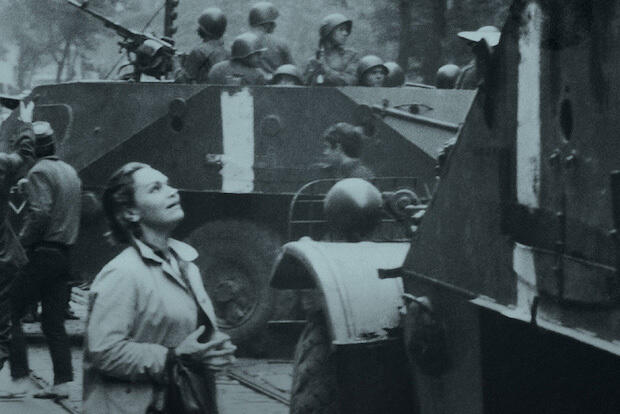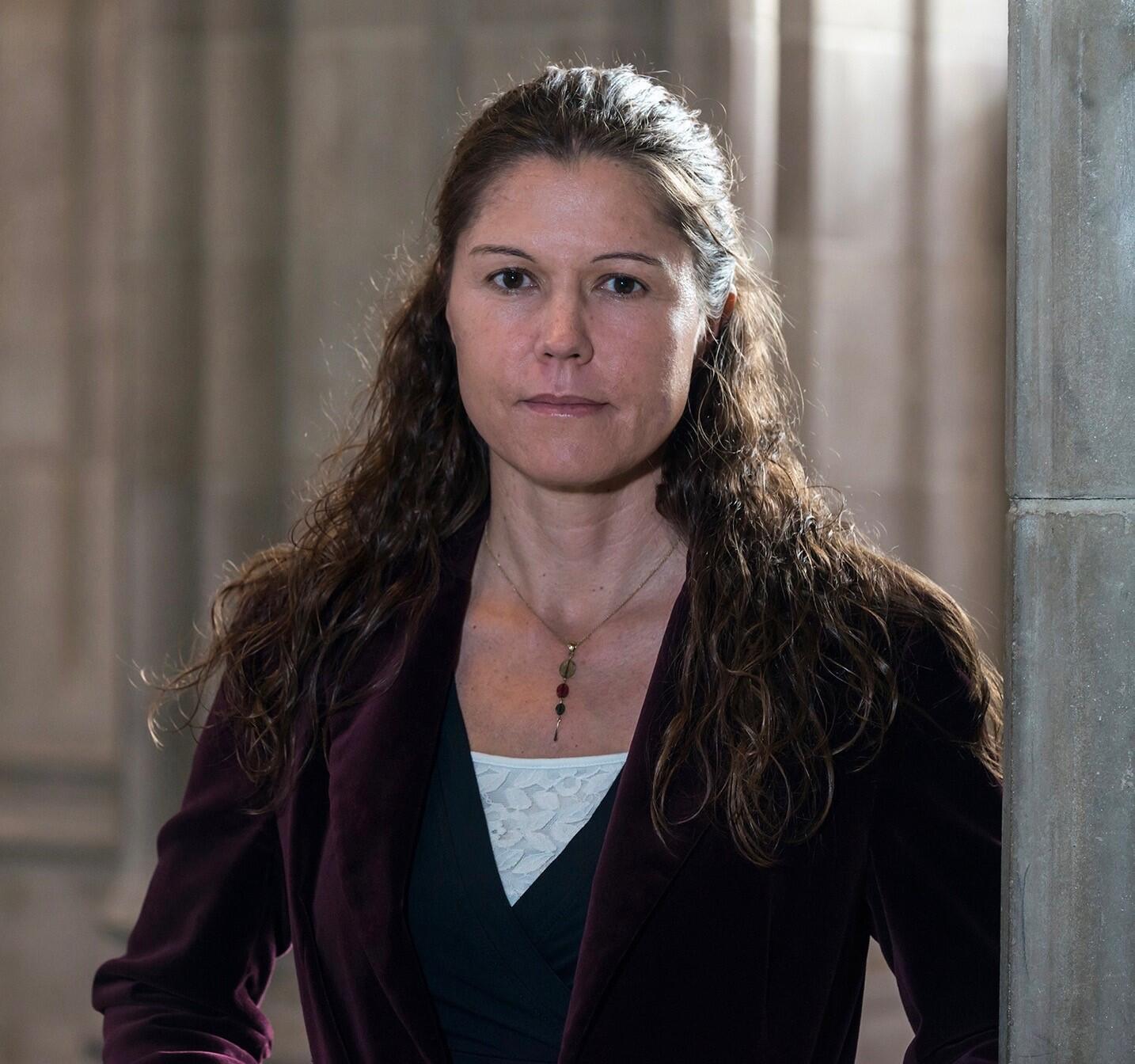
Jan. 7, 2021
In “Confronting Totalitarian Minds,” timely lessons from the past
The forthcoming book by VCU professor Aspen Brinton is inspired by Czech philosopher Jan Patočka and examines the use of dissidence to challenge leaders to be more democratic.
Share this story
It would be understandable to wonder whether Aspen Brinton’s forthcoming book, “Confronting Totalitarian Minds,” is about events happening in America today.
“I had a colleague read the title and thought I was writing about the Trump White House,” said Brinton, Ph.D., an assistant professor of international studies at Virginia Commonwealth University.

Though not focused on current events — the book is inspired by philosopher Jan Patocka, who lived through the turbulent politics of 20th-century Central Europe and became involved in political dissidence that challenged a totalitarian mindset — it does have practical, timely relevance today, Brinton said, especially in light of the turmoil following the 2020 U.S. presidential election.
“While Patocka wrote in a state-sponsored totalitarian regime that existed in the past, the premise of the book follows his ideas that a totalitarian mindset can exist anywhere and at any time,” Brinton said. “People can be convinced to follow along quite easily, and many forms of manipulation can create totalitarian minds.”
The book stems from Brinton’s long fascination with Eastern Europe, a region that saw many conflicts that changed people’s lives in the 20th century. The region experienced two World Wars, occupations by Adolf Hitler and the Soviet Union, and the collapses of the Austria-Hungary empire and the Czech democracy during World War II.
“I also became fascinated with the occupation of Eastern Europe and the communist regimes supported by the Soviet Union, what it meant to people that lived there, including the censorship and totalitarian government,” said Brinton, who teaches in the School of World Studies in the College of Humanities and Sciences, and whose first book, “Philosophy and Dissidence in Cold War Europe,” looked at the philosophical legacy of Eastern European dissidents during the Cold War.
Brinton spoke with VCU News about “Confronting Totalitarian Minds,” set to publish later this year.
Why are you so interested in Patocka?
He was a philosopher and academic most of his life. Late in his life he became involved in the Charter 77 movement, which was led by Vaclav Havel, a playwright who was challenging the [Czechoslovak Socialist Republic] regime’s hypocrisy on human rights issues. They were protesting against the communist government and the control of Czechoslovakia by the Soviet Union. Patocka became a spokesman for the group and eventually died as a result of a police interrogation. The idea of political sacrifice, how he got involved and died, made the story compelling to me. I thought his story was broadly applicable to other dissidents.
How is his story relevant today?
The question becomes about how to confront those trapped in a totalitarian mindset, especially those who find themselves in positions of power. Many scholars of Eastern Europe see these connections to today and are writing about the lessons relevant to the collapse of democracy. A lot of what Patocka writes about and his own philosophy are trying to confront and challenge self-deception and dishonesty. He has a lot of insight about how to become self-aware, including how a totalitarian mindset might influence your own belief system and hide from you truths about the world. Today populist regimes often manipulate people with ideologies, and even though the ideologies have changed, the process is quite similar. Dissidence is therefore necessary to continually challenge the institutions of democracy or the presidency, so that they might not be undermined and destroyed.
Is that applicable in the U.S.?
Many people assume that our own democracy, because it is old, will not collapse and will always be stable. The lessons of Eastern Europe would suggest that that might be naïve. Our democracy did partially collapse during the Civil War, and totalitarian minds that subvert the truth and manipulate people can tear things apart again. What I’m trying to do is highlight how activists and dissidents that work against totalitarian minds — in all their forms — might help preserve democracy by constantly challenging leaders to be more democratic.
How does the book help people?
Each chapter offers an explanation of Patocka’s core ideas and then puts these ideas into conversation with a different set of dissidents. Each “conversation” is meant to help people think about how they think, offering a different example and conversation that illuminates how ideas can be changed, but also how ideas themselves can then change the rest of the world.
Is there a particular part of the book that you thought was the most relevant?
I did come up with this title after the inauguration in 2017, and it was partly inspired by a conference about how Eastern European history was relevant to regimes around the world and our country. Those conversations helped me think through what was happening in the present related to this, and especially the last chapter, about environmental activists, is trying to speak to what is probably our most complicated common problem.
Why will people appreciate this book?
I hope people can see it as a general introduction to Patocka and ideas related to totalitarianism. The text tries to add to the conversation in political theory about comparative and non-Western approaches, so I hope its methodology is also appreciated by other political theorists and can help open up the way we do our work more generally.
Subscribe to VCU News
Subscribe to VCU News at newsletter.vcu.edu and receive a selection of stories, videos, photos, news clips and event listings in your inbox.










